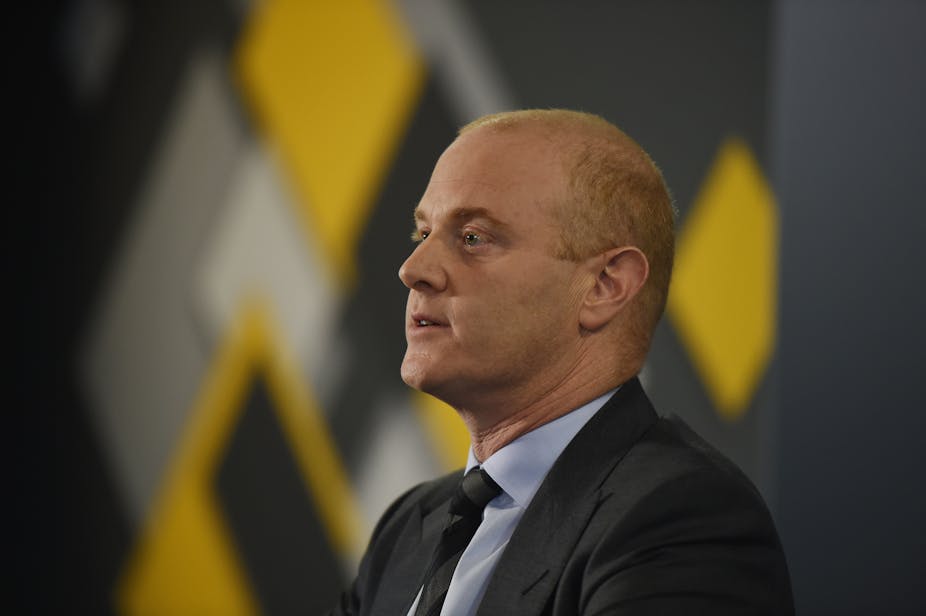It clearly took some courage (and a lot of persuasion from powerful friends) to convince Ian Narev, the Chief executive of the Commonwealth Bank to respond to widespread demands and front the media with a proposal to launch an independent inquiry into the CBA financial advice scandal. According to its statement:
Today we are announcing our Open Advice Review program. This is a new, far reaching program of review and remediation with independent oversight, to deliver fair and consistent outcomes for customers of CFP and FWL. This program demonstrates our commitment to make it right for our customers.
His delivery of this decision was forthright and seems a sincere attempt on the part of the leadership of the bank to do the right thing. This inquiry into the compensation of the victims is long overdue, but Narev is now committed to seeing it through.
“We are opening it up,” he said, “We are on the hook for the difference between the performance of the portfolio you ought to have been put in and the one you were actually put in.”
Yet he also admitted that nine of the advisers allegedly involved in misselling to customers are still working for the bank. He admitted the cause was “ a culture of defensiveness” and he accepted “management’s responsibility for this”.
Act of contrition or defensive ploy?
The CBA will have to go a long way further to convince people that it is determined to right the wrongs it has caused to up to 12,000 investors who were misled.
Some will have doubts about the probity of an independent inquiry commissioned by the CBA itself. Among them is Jeff Morris, the former CBA financial planner who blew the whistle and went to ASIC and the CBA management about what was happening. He has insisted that the CBA cannot be in control of the process of the inquiry and that the CBA should not be the first point of contact for the victims.
It would be a tragedy if the inquiry itself contributed to the anxiety of the people who have experienced serious losses and prolonged prevarication from the bank, rather than assisting in a speedy resolution of their grievances.
Will this inquiry be robust and independent enough to do its job objectively and ensure that justice is done?
Overseas bank inquiries
There is some precedent of big overseas banks commissioning independent reports on themselves, which have proved rigorous and resolute.
The Salz Review into Britain’s Libor rate fixing scandal at Barclay’s Bank did not pull any punches, though it was commissioned by the bank’s own management.
The review exposed the “gaps between Barclay’s publicly articulated values and its business practices”.
Earlier Antony Jenkins, the new CEO of Barclays admitted in the bank’s 2012 Annual Report:
For the past 30 years, banking has been progressively too aggressive, too focused on the short term, too disconnected from the needs of our customers and clients, and wider society and we lost our way.
But this veracity followed the removal of both Barclay’s CEO Bob Diamond and Chairman Marcus Agius, who were responsible for the Libor scandal, and after the new Chairman Sir David Walker had drafted the UK government’s critical report on bank governance, calling for more challenging boards able to stand up to management.
Similarly at UBS a devastating report was commissioned from KPMG which excoriated management for a wholesale neglect of risk management in favour of revenue generation. However this report would never have been published if shareholders had not demanded the management of the bank to do so.
Will the CBA Deliver?
The question is will CBA deliver on its promise to restore the losses of the customers who have been deceived by CBA’s financial advisers?
It is under enormous pressure to do so now, but there will be continual doubts about the independence of its independent review until some real results are achieved. Calls for a Royal Commission continue, despite the obvious reluctance of the Coalition government.
In the meantime there will rightly be close scrutiny of the independence, integrity and capability of the members of the inquiry.
The early conduct of this CBA inquiry will inevitably impact on the consideration of the government’s Financial System Inquiry led by David Murray, the former CEO of CBA. The interim report is due on July 15.
The Australian public has the right to be treated honestly and fairly by the big banks, and for there to be transparency and rigour in the resolution of serious malfeasance when it occurs.

